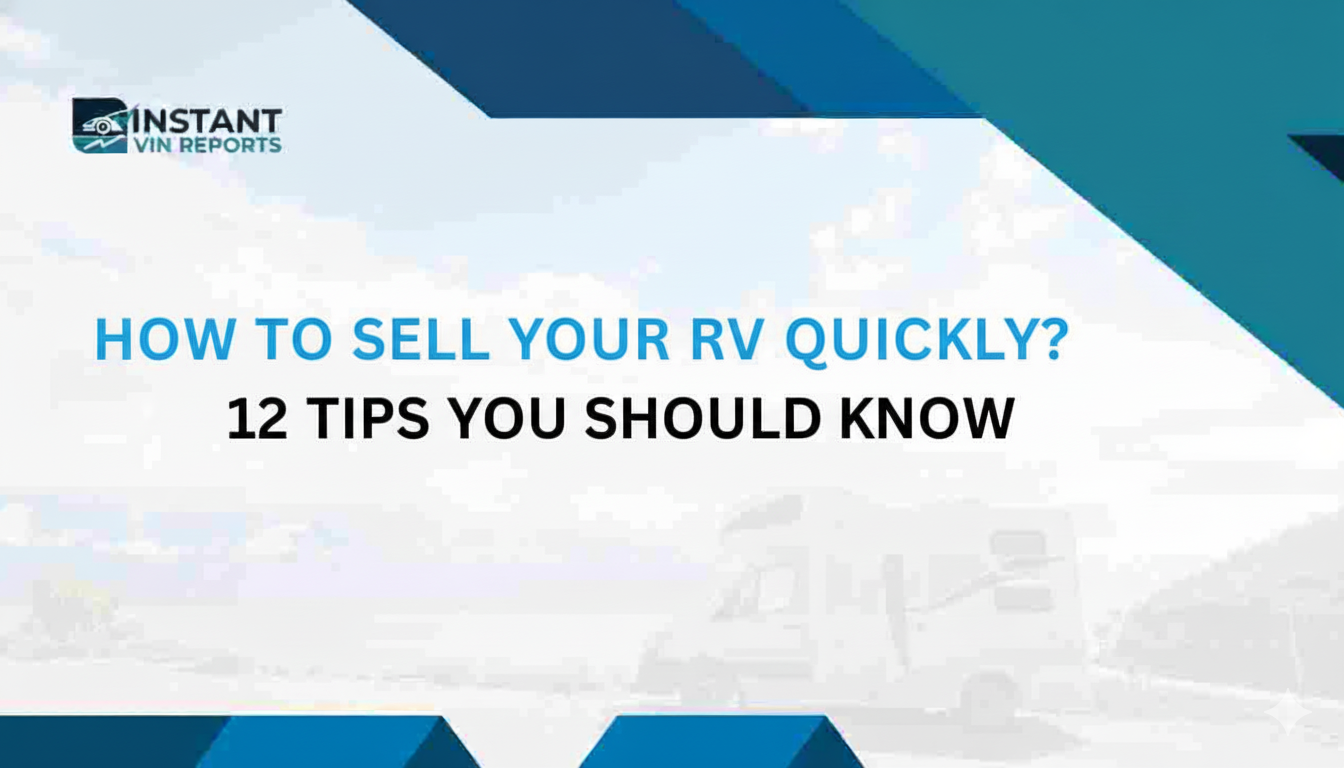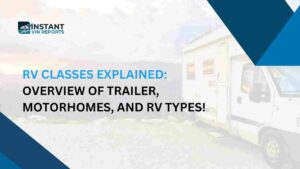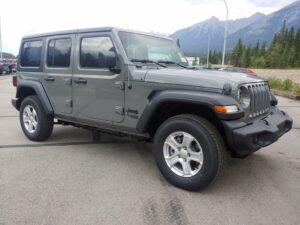Selling an RV is difficult, especially if you are a first-time RV seller. If you want to sell the RV at a high price, you only need to set the right selling strategy and upgrade what already exists on your RV to make it stand out among competitors. We’ve listed tips for selling your RVs quickly, starting with pricing, vehicle preparation, and presentation. This article has all the information you need before selling your RV.
Tips for How to Sell an RV Quickly
Following the right steps can make a big difference if you want to sell your RV fast. We’ve put together some useful tips to help you attract buyers and close the deal quickly.
From setting the right price to advertising effectively, these steps will guide you through the process. Read below to learn the best ways to sell your RV without delays.
Preparation is Key
Visual is the key when it comes to vehicle buying and selling. Take some time to prepare the RV you want to sell to make it stand out in the market; for additional information, you can also prep for the selling strategy that could be implemented to get the maximum ROI (after all the hard work you’ve put into your RVs).
Knowing the right time to sell an RV is advisable, and you do not want to sell your RV at the wrong time since it could lead you not to sell the RV. The best time to sell RVs is during the summer time as it is the peak season of summer holidays and a lot of people are going on road trips with their friend groups; for additional information, the lowest season to sell RVs is at the end of September until the end of October. Many RV sellers discounted the price during the low season to increase sales.
Start a Month or Two Before Summer Camping Season
As we have mentioned, the peak season for RV is during the summer season, which occurs from June to August. This means you can prepare the RV months before it hits the market before summer. Put the preparation three months before summer, including polishing and fixing the RV. This preparation should include thorough cleaning, polishing, and fixing any issues to ensure the RV is in excellent condition.
Additionally, researching the market is essential to understand the preferences of potential buyers. Knowing what your target audience is looking for will help you position your RV more effectively and attract the right buyers before the summer rush begins.
Depersonalize and deep-clean
To attract more buyers, it’s important to remove any personal items from the RV so the buyers can imagine this space is truly theirs and make them connect easily to the vehicle. Take your family photos, decorations, and other personal belongings from the RV.
Along with depersonalizing, you must deep-clean all the RV rooms. Clean every corner, including carpets, upholstery, and windows, to give the RV a fresh and well-maintained look. A clean RV creates a strong first impression and makes buyers feel it’s ready to use. A tidy and neutral space increases the chances of selling the RV quickly.
Prepare the Vehicle History Report
Selling a used vehicle requires extra miles to gain the buyer’s trust. A legitimate document verifies that the RVs are cared for and in good hands. Getting such documents is easy: Go to the Instant VIN Report’s RV VIN decoder tool and enter the VIN in the dedicated area. Wait a few minutes, and you’ll get detailed information about the RV.
The history vehicle report has all the necessary information, details like accident history, service records, and other important data to help you present your RV in the best possible light. A detailed history report can set your RV apart from others on the market, making it easier to gain buyers’ trust and close the sale faster.
Have It Serviced
A well-maintained RV creates a strong impression and increases its value. Before listing the RV to the market, take the time to inspect the whole vehicle to see if there are any major and minor issues like dents, paint that peels off, and worn-out parts. After finding which part needs to be fixed, do not forget to call up a professional to fix all of the issues found.
A thorough inspection ensures that the RV is in excellent condition and gives potential buyers confidence that the vehicle has been cared for. Investing in maintenance upfront can lead to a quicker sale and potentially higher offers from interested buyers.
Stage It Like You Would a Home
Property staging is believed to increase the number of buyers and enhance the RVs’ appeal. Neutral decor can create a welcoming atmosphere while ensuring the design suits a broad audience. Clutter should be removed, and furniture should be arranged to highlight the space’s functionality and openness. Adding small accents like cushions, throws, or rugs can bring warmth and charm to the interior.
Natural light plays a crucial role in showcasing the RV’s features. To brighten the space and create a sense of airiness, curtains or blinds can be opened, and windows can be cleaned. A thoughtfully staged RV helps buyers visualize its potential, making it stand out.
Make It Seem Bigger
Creating the illusion of space can enhance the RV’s spaciousness for potential buyers. Decluttering is the first step; removing unnecessary items opens up spaces and makes them feel less cramped. Strategically placing the mirror also plays a crucial role in creating the illusion of a larger, more open RV area and reflecting some light to create a bright room.
Smart storage compartment organization is also essential. These areas are tidy and functional, demonstrating the RV’s capacity for practical living. Proper use of vertical storage and multi-functional furniture can further enhance the sense of space, making the RV feel more comfortable and versatile.
Take High-Quality Photos, Preferably in a Campground
Be the apple of the eyes of the buyers. The main key to competing in a very competitive online RV market is to put in the best effort to get the best picture for the RVs; hence, finding a good spot and hiring a good photographer is key.
Pictures are a crucial part of the online marketing game. RVs are related to the outdoor lifestyle, and you can arrange an outdoor photoshoot dedicated to your RVs. Places like campgrounds, RV parks, or on the road in the middle of the desert are advisable.
Subjectively Price It
Setting a competitive price for the RV requires careful consideration of various factors. Comparing similar listings on the market helps estimate the price according to the market, offering insight into buyers’ budgets. Depreciation should also be calculated based on the price, as the age and mileage of the RVs significantly influence their value.
Depreciation and amortization influence not only the price but also the condition of the RV. A well-maintained RV with few to no major issues can be commended for its higher price in the market. Thus, the price should also consider RVs with upgraded appliances, such as in the kitchen, a customized interior, or additional amenities.
Describe Unique Selling Points and Flaws
Transparency is essential in building trust with potential buyers. To attract interest, sellers should highlight the RV’s unique selling points, such as special features, recent upgrades, or customizations. These standout attributes can set the RV apart from others on the market.
Equally important is honestly disclosing any flaws. Whether it’s cosmetic damage, mechanical issues, or minor wear and tear, being upfront about imperfections helps prevent misunderstandings and fosters buyer confidence. By offering a transparent and honest description, sellers can establish a positive relationship with buyers, leading to a smoother transaction and a quicker sale.
Explain the Functionality
Effort would never betray those who put it in. Many people may not be familiar with how RVs work. Sellers should consider creating a video tutorial or written description that covers how various systems in the RV function, such as plumbing, electrical setups, and kitchen appliances.
Offering clear instructions on inspecting the RV for issues can also be helpful. This transparency helps build trust with buyers, ensuring they understand what they’re purchasing and how to use the RV correctly.
Include the Original Paperwork
Complete documentation of RVs is crucial to earning the buyer’s trust in the used car market. It doesn’t make sense if you want to buy a used vehicle, but the seller doesn’t have the complete documentation. Usually, the original paperwork has some crucial information about the RV, including maintenance records, user manual, and purchase invoice. Before the RV is out for sale, ensure the original paperwork is completed in case potential buyers ask for it.
Bring It to Potential Buyers
Arranging an offline appointment with the buyers at a location they prefer can smoothen the buying process. Meeting the buyers in person allows them to inspect the RV thoroughly, earn their trust, and easily explain what’s behind the RV.
This approach is often more practical than solely relying on virtual meetings, such as video calling, as it’s hard to show and explain the RV alone. Creating an inviting environment for buyers to exchange information and see the vehicle thoroughly is a good strategy for increasing sales.
Get the RV Ready to Hit the Road
Preparing the RV for its future owner is a thoughtful way to make an everlasting impression and increase the buyer’s trust in the seller. Even if the RV is used, the next owner will likely drive it immediately to the campground.
Outfitting the RV with freshly washed covers, blankets, and towels creates a welcoming atmosphere. Including essential items like clean kitchen appliances or utensils can save the buyer time and effort, making the RV more convenient for immediate use.
Securing the Deal
Finalizing the deal of the RVs requires a structured approach. Negotiating for the price is the first step in securing the best deal for the RV. As a buyer or seller, it is important to be prepared for a discussion before it reaches the final agreement on the price, RV conditions, and additional features it may have. Remember to be flexible during the arguments to foster goodwill and lead to a mutually satisfactory agreement.
Once the price is agreed upon, the next step is to complete all the necessary formalities, such as filling out the paperwork, including drafting a bill of sales, ensuring all the ownership documents are now in the new owner’s name, that all the documents are valid, and that the transaction is compliant with the local government. Proper documentation protects both parties by providing legal clarity regarding the transaction and ownership.
Arrangements should be made to promptly transfer the title, registration, and any associated fees. Ensuring the new owner has all required keys, manuals, and documents related to the RV’s operation further enhances their experience. A well-organized process not only secures the deal but also leaves a positive impression on the buyer, reinforcing the integrity of the sale.
Conclusion
Selling a used RV in online markets can be challenging. To effectively market your RV, you must set a competitive price based on current market trends, monitor any shifts in demand, and understand the peak and off-peak seasons for RV sales. When you optimize these factors, potential buyers will likely come your way.
However, remember that as a seller, you must be able to present a solid argument about your RV’s benefits. Try but try to approach negotiations with a clear and cold-headed mindset. This way, both parties can reach an agreement swiftly and ensure that the RV is sold at a fair price.
FAQ How to Sell RV Quickly
Is it financially smart to buy an RV?
Although owning an RV may be justified through frequent use, the financial burden of purchasing, maintaining, and storing it can be significant. Renting offers a simple, stress-free alternative for those who prefer to avoid the responsibilities of ownership.
What is the 444 rule for RV?
To optimize your RV experience, consider the ‘4-4-4 Rule’: drive a maximum of 400 miles per day, arrive at your destination by 4 p.m., and plan for a minimum four-day stay. This approach allows for more leisurely travel and thorough exploration.
Can RV be sold without a title?
To legally sell your RV in most states, you’ll need the vehicle title and proof of ownership. As part of the sale process, this title is transferred to the buyer, confirming their vehicle acquisition.










